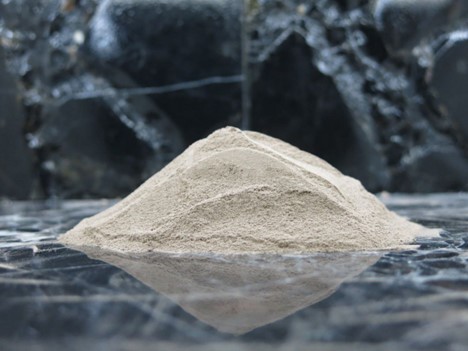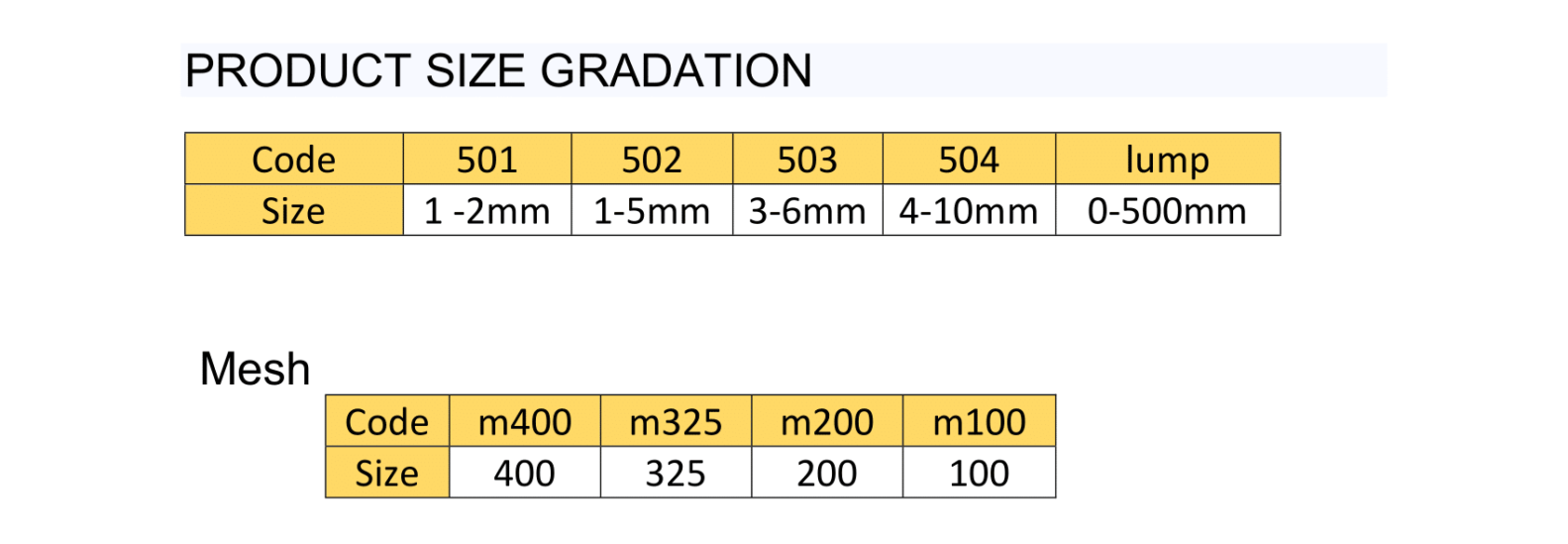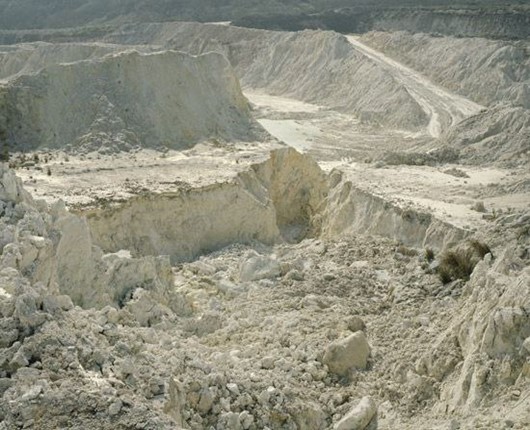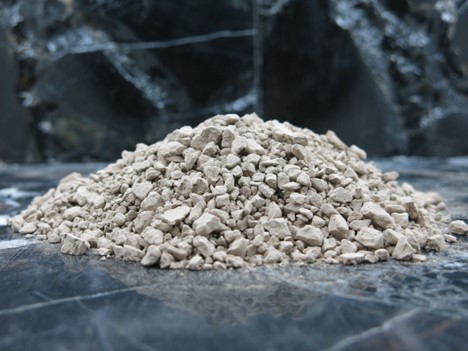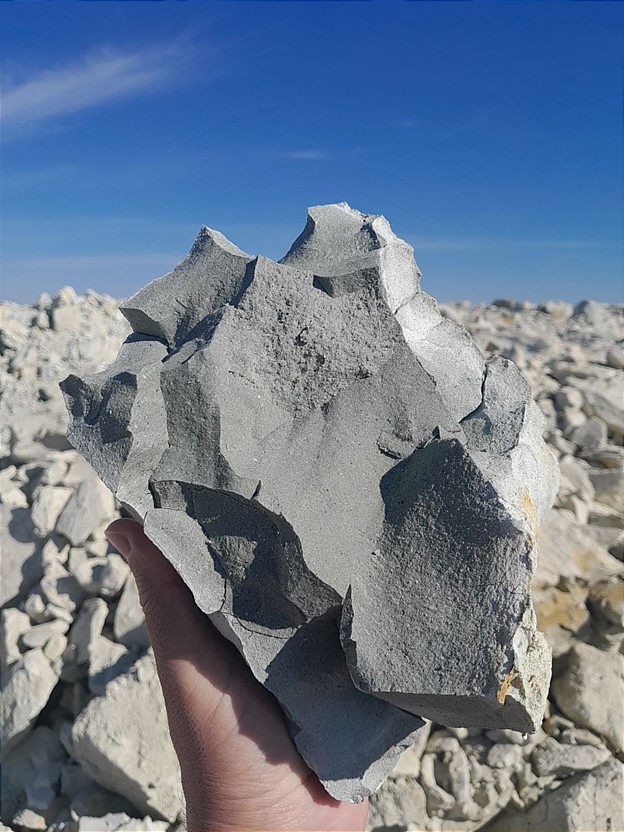What is Bentonite?
Bentonite is a type of clay derived from volcanic ash deposits, primarily composed of the mineral montmorillonite. It is formed through the weathering of volcanic ash combined with the presence of water. The unique properties of Bentonite arise from its layered structure, which consists of thin platelets that have a negative charge on their surface. These negative charges give Bentonite its ability to attract and hold positively charged ions, making it an excellent adsorbent.
Bentonite is made from weak bond of alumina and silica sheets that could be divided into thickness of 0.003 micrometers and 0.01 micrometers length in the aquatic environment. The electrostatic charge and easy dividing causes the wide spread in the water.
Bentonite have Na+Ca2 or +Mg2 exchangeable cations and the most ion-exchange capacity in the minerals except Zeolite. This feature affects on bentonite’s commercial properties and classified on this base. Sodium bentonite has high swelling ability and calcium bentonite has low swelling ability. Another basic different between these two minerals is that the sodium one is stable up to 752 Fahrenheit. Calcium bentonite reacts with sodium carbonate to increase its swelling property.
Sodium bentonite has an octahedral structure made of six hydroxyl units. Sodium bentonite is available in bags and bags and is sold as water absorption power of 250, 400, 600 and 800. This bentonite is produced in the form of lumps, granules and powder with high capability and has good quality. Sodium bentonite has different compositions. The color of sodium bentonite is generally white or cream or pink or green.
Calcium-containing bentonite has a high ability to absorb oil and is used in the oil refining and cosmetic industries.
Among its physical and chemical characteristics, the presence of 67% Montmorillonite can be mentioned. It has 60% calcium and 13% aluminum oxide. For this reason, this soil is a safe combination and has a suitable coating for drilling walls.

We are the BEST in the Field of EXPORT, For any Query or Request
PMD GROUP is able to supply all kinds of customized Bentonite based on the analysis and technical specifications requested by the customer. This process includes information about the detailed analysis and technical requirements and specifications of each order so that we can provide the best quality and efficiency for each product. Using advanced tools, our expert team checks all the features and special needs of the order and optimizes the production process in such a way that the final result meets the customer’s expectations.
At the same time, we customize the packaging according to your needs. Packaging that increases your brand credibility in today’s competitive markets at the lowest cost. We are ready to work with you and help your brand grow and succeed.
Please remember that for each of these applications, there is a specific grade of bentonite that is specifically boosted for its use and includes properties that may be demanded.

BENTONITE FORMS
Powdered Bentonite:
Natural bentonite is ground to a fine powder to create powdered bentonite, which is the most used kind of bentonite. It is often used in the drilling, foundry, and cosmetics industries.
Lump Bentonite:
Bentonite that has not been finely processed into a powder is called lump bentonite. It is often employed as a sealer or binder in sectors including building and agriculture.
Granular Bentonite:
Bentonite is crushed into granules of various sizes, usually between 2 and 4 mm, to produce granular bentonite. It often appears in applications for sealing soil.
Pelletized Bentonite:
Bentonite is crushed into tiny pellets or granules, usually with a diameter of 1 cm, to create pelletized bentonite. It is often used to soil amendments in agriculture and water treatment.

Characteristics of Bentonite
Bentonite possesses several notable characteristics that make it an ideal material for various applications:
1. Swelling: It exhibits a high degree of swelling when in contact with water, expanding several times its original volume. This property makes it valuable in applications such as drilling muds, where it helps stabilize boreholes by preventing the influx of water or other fluids.
2. Thixotropy: It shows thixotropic behavior, meaning it becomes more fluid when agitated or subjected to shear forces and returns to its gel-like state when left undisturbed. This property finds applications in industries such as cosmetics and pharmaceuticals.
3. Adsorption: It has excellent adsorption capabilities, allowing it to attract and bind with toxins, heavy metals, and organic compounds. This property is utilized in wastewater treatment, environmental remediation, and the purification of edible oils.
Bentonite Suppliers and Exporters
As the demand for Bentonite continues to grow, the presence of reliable Bentonite suppliers and exporters becomes essential. These suppliers source raw bentonite clay from various deposits, process it into different forms such as Bentonite powder or organic bentonite clay, and supply it to industries worldwide.
Iran has emerged as a significant Bentonite exporter in recent years. With vast Bentonite reserves and favorable geological conditions, Iran offers a steady supply of high-quality Bentonite. Iranian Bentonite exporters cater to global markets, providing Bentonite in various forms to meet specific industrial requirements.

Drilling bentonite is used in API and OCMA drilling and piling for the following reasons:
• Has a protective composition.
• It has high resistance against the pressure and weight of the soil.
• Prevents the accumulation of sludge and waste materials.
• When combined with water, it becomes slippery and jelly-like.
• It will lubricate the drill

BENTONITE TYPES
Bentonite comes in a variety of forms, each with its own special set of properties and applications.
The most typical varieties of bentonite are listed below:
Sodium Bentonite: This kind of bentonite is distinguished by a strong capacity for swelling and water absorption. It is frequently utilized in the creation of cat litter, drilling mud, and sealing compounds for ponds and landfills.
Calcium Bentonite: Compared to sodium bentonite, this form of bentonite has a lower swelling capacity and is less absorbent. It is frequently employed in the manufacture of cosmetics and as a binding agent in foundry sand.
Bentonite that has been polymer-modified is a modified form of sodium bentonite that has been given a polymer treatment to improve its properties. It is frequently employed in the remediation of contaminated soil and drilling mud.
Bentonite made of potassium is comparable to sodium bentonite but has a greater capability for exchanging cations. It is frequently employed in agriculture to increase soil fertility and provide animal feed.
Safety
This mineral compound in itself is not a dangerous and toxic compound. There is no concern about this combination, but it is recommended to follow the safety rules of working with solid chemicals.
If this substance comes into contact with the skin or eyes, immediately wash the contact area with plenty of water for at least 15 minutes.
Follow medical advice. If you have inhaled the dust of this compound, move to fresh air immediately. If you notice any unusual symptoms, be sure to see a doctor.
Take personal safety precautions. Ensure proper ventilation of the warehouse where this mineral composition is stored. Use personal protective equipment. Avoid moving places that cause dust to be generated from this material. Avoid contact with skin, eyes and clothes.
Storage Condition
The warehouse where bentonite is stored must have proper ventilation.
Avoid placing the packages of this composition near or in contact with moisture.
Keep containers or bags of this compound tightly closed in a dry, cool and well-ventilated place.
This compound is stable and no specific hazards have been recorded for it in terms of reactivity.
Avoid storing bentonite bags in the vicinity of strong oxidizing agents and strong acids.
In case of decomposition, hazardous products are not produced under normal conditions
Grades
This substance also can be divided into different grades based on the factors below:
- Sulfur content.
- Percentage of Bentonite Clay.
- Moisture percentage.
- Particle size.
- Color.


